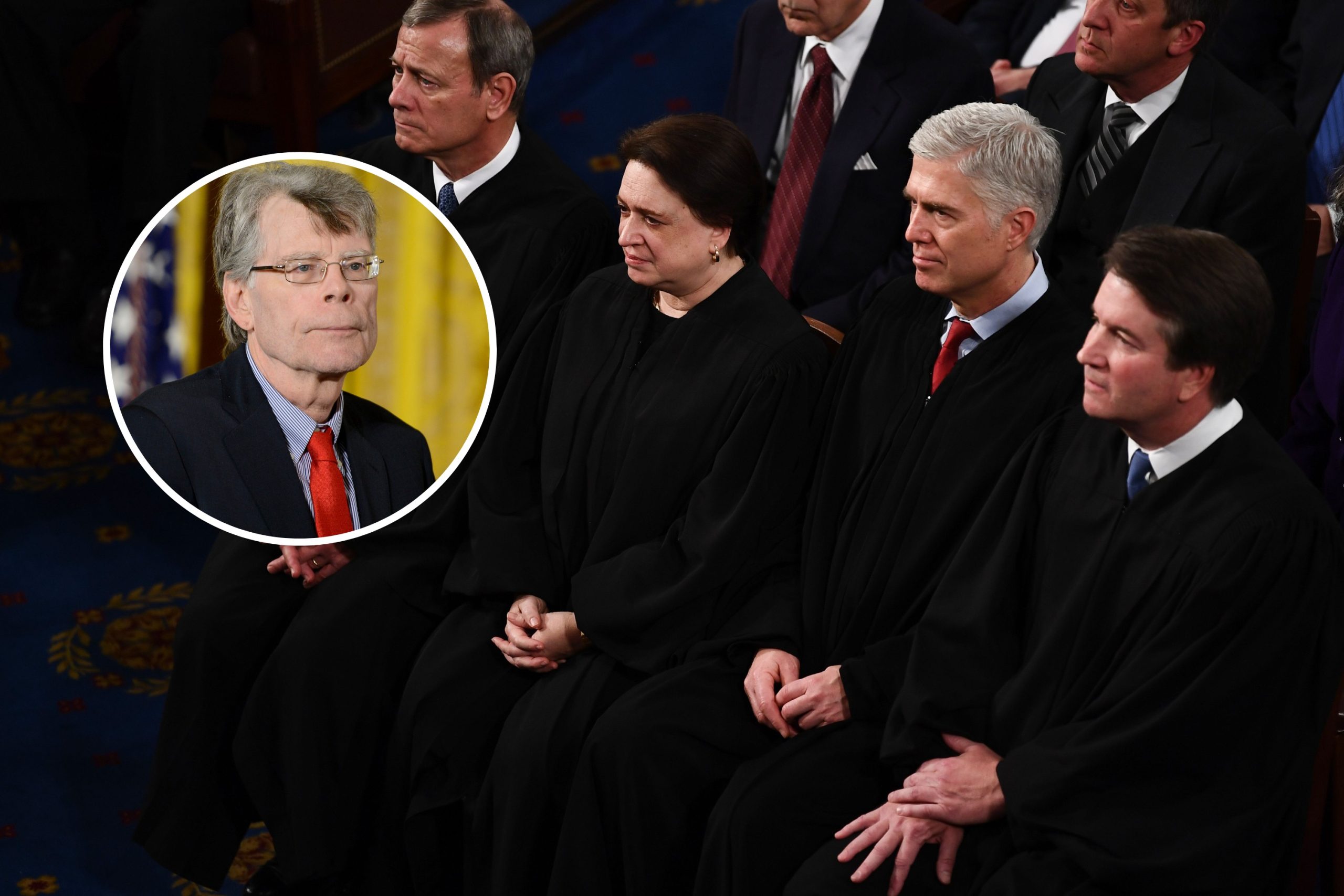Stephen King has called out three conservative Supreme Court Justices for allegedly considering former President Donald Trump to be “above the law” in a viral social media post.
King, a frequent Trump critic and the author of classic horror novels like It and The Shining, suggested on Wednesday in a post to X, formerly Twitter, that Chief Justice John Roberts and Justices Samuel Alito and Brett Kavanaugh had all reneged on pledges they made during their confirmation hearings while siding with Trump on presidential immunity.
Earlier this week, all six of the court’s conservative justices threw the status of Trump’s felony convictions and three pending criminal cases into doubt by ruling that presidents have absolute immunity from criminal prosecution in matters involving official acts, while leaving the definition of official acts up to lower courts—an act King said Tuesday, in part, “Thanks to the Supreme Court, the next president will have the powers of a king.
“That’s not what the founders intended. Quite the opposite.”
“Three Supreme Court justices—Alito, Kavanaugh, and Roberts—said in their confirmation hearings that ‘no man is above the law.’ But in the case of the United States vs. Donald J. Trump, Trump won,” King wrote in his post, which had over 430,000 views at the time of publication.
Three Supreme Court justices—Alito, Kavanaugh, and Roberts—said in their confirmation hearings that “no man is above the law.” But in the case of the United States vs. Donald J. Trump, Trump won.
— Stephen King (@StephenKing) July 3, 2024
Newsweek reached out for comment to a Supreme Court spokesperson via email on Wednesday.
All of the justices cited by King did make comments suggesting that presidents are not “above the law” and should not be immune from prosecution when they took part in their Senate confirmation hearings.
During his September 2005 confirmation hearings, Roberts said the following: “I believe no one is above the law under our system, and that includes the president. The president is fully bound by the law, the Constitution and statutes.”
Alito had similar comments during his January 2006 confirmation hearings, arguing that “no person in this country is above the law, and that includes the president and it includes the Supreme Court.”
“Everybody has to follow the law, and that means the Constitution of the United States and it means the laws that are enacted under the Constitution of
the United States,” Alito said.
Kavanaugh, a Trump appointee, said “No one is above the law” at multiple points while discussing presidential immunity during his hearings in September 2018, agreeing with the statement that presidents are not “immune from either being sued or being charged with a crime because they are president.”
“No one has ever said, I do not think, that the president is immune from civil or criminal process,” Kavanaugh said. “So, immunity is the wrong term to even think about in this process. The only question that has ever been debated is whether the actual process should occur while still in office.”
The other two Trump-appointed justices, Neil Gorsuch and Amy Coney Barrett, also argued that presidents were not “above the law” years before granting the office some immunity when ruling on Trump’s legal troubles.
Gorsuch said that “no man is above the law” several while discussing presidents at his confirmation hearings in March 2017, while Barrett agreed that “no one is above the law” but said that “the Supreme Court can’t control whether or not the president obeys” the law.
BRENDAN SMIALOWSKI/AFP; Leigh Vogel/WireImage
Uncommon Knowledge
Newsweek is committed to challenging conventional wisdom and finding connections in the search for common ground.
Newsweek is committed to challenging conventional wisdom and finding connections in the search for common ground.
